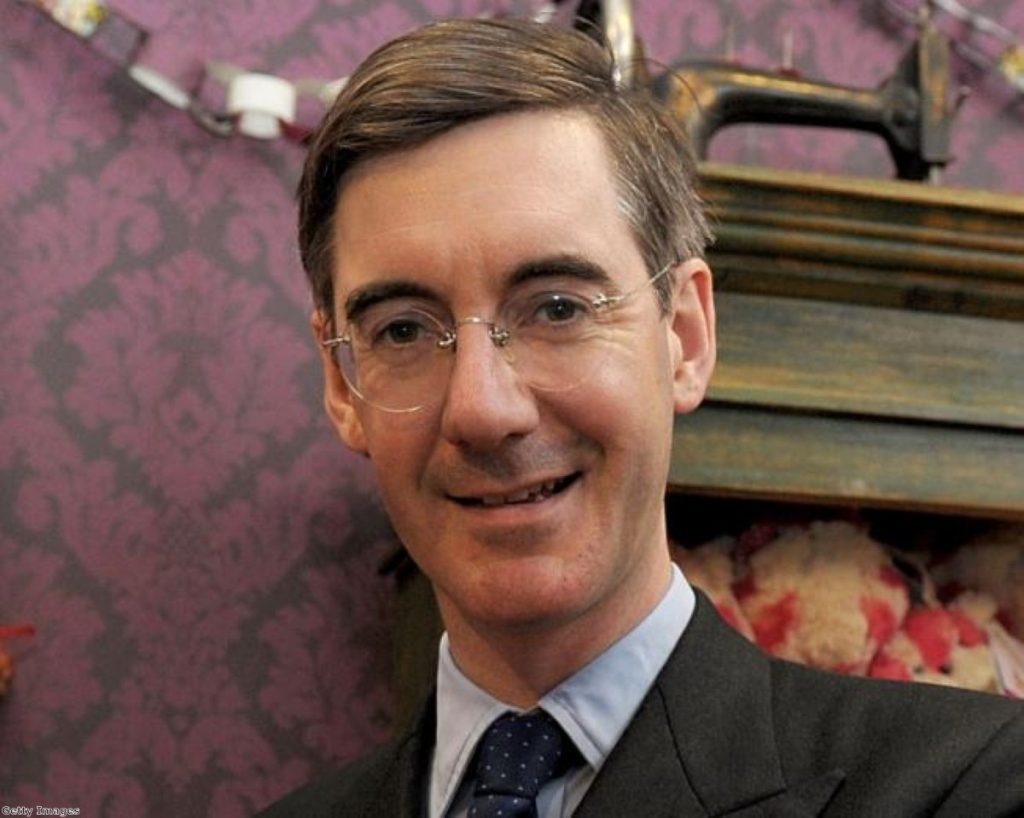Rees-Mogg: Coalition can’t fix Britain
The coalition government will not solve Britain's fundamental problems because of its ideological divide, Conservative MP Jacob Rees-Mogg has warned.
The Tory backbencher's prospectus for "principled Conservatism", which calls for a major shift from the state to the individual, is outlined in his contribution to a pamphlet published by the Politeia thinktank today.
He told politics.co.uk he fears the changes he is calling for to help "unleash talent and enterprise from which the whole of society benefits" will not be achieved with Liberal Democrats in government.
David Cameron and Nick Clegg's project would not be able to deliver the move away from the "post-war consensus" that backs big government over individual responsibility," Mr Rees-Mogg said.


"That is a failed model. I think coalition can't deliver that because there are too many divisions between the two parties, but a future Conservative government needs to deliver a fundamental readjustment of the role of the state."
Mr Rees-Mogg said ministers had to "stick to the confines of collective responsibility" to avoid "chaotic government". He hit out at the leaking of the 2012 Budget, which he suggested was the result of coalition politicking.
"Coalition inevitably has different strains from single party government," he added. "Some of these are unhelpful."
The Politeia pamphlet sees the North-East Somerset MP argue that mediocrity and a lack of accountability are the direct result of people being prevented from making their own decisions.
Its other contributors, all Tory MPs who entered parliament in 2010, include John Stevenson, Jason McCartney, Craig Whittaker, Fiona Bruce and David Mowat.
"The creeping power of unelected officials has made central and local government seem impervious to the people," Politeia director Sheila Lawlor said.
"Here, by contrast, Jacob Rees-Mogg and his co-authors suggest that the solution to many of the problems with which we contend today will be found by individuals taking the initiative and government playing its part in setting them free to do so."
Mr Rees-Mogg said he wanted to put pressure on ministers to remind both the party and the general public that Conservatives had something different to offer come the 2015 general election.
"Each side has to put forward its own principles, assuming we're not going to be in coalition forever," he continued.
"Government has to make considerable amounts of compromises between the two sides, but the parties that make up the coalition need to remind themselves and the people of the principles of what they're trying to do."
He refused to accept his ideological approach to politics was inappropriate but made clear that ministers had to be more pragmatic.
"You have to be very careful not to become so ideological that your ideology overtakes reality and doesn't recognise that this is not a perfect world," Mr Rees-Mogg said.
"There isn't an ideology that answers every single question. and that sometimes there are other factors that need to be taken into account.
"If you don't have principles underlying what you're doing, what on earth are you doing?"









